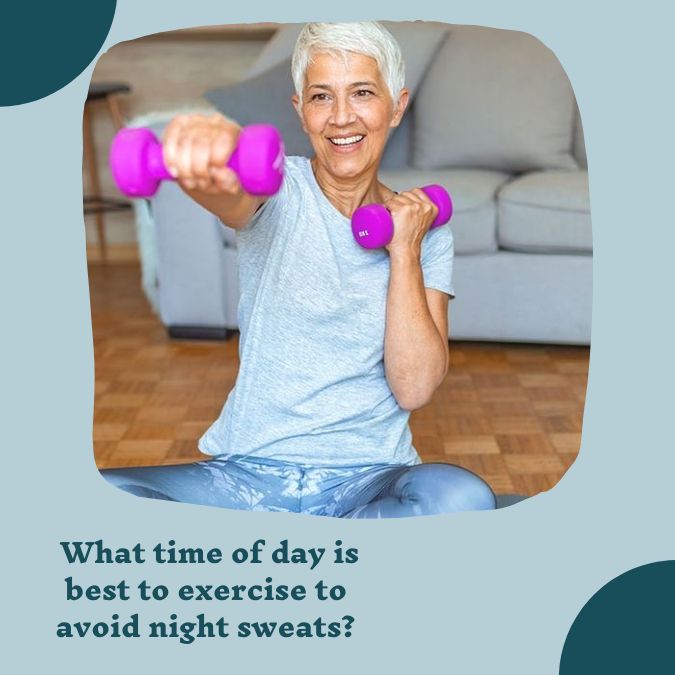
How the timing of exercise impacts menopause related night sweats
Share

Have you ever decided to do a big workout right before bed – maybe you do that because it’s the only time in your day when you can carve out “me time.” In the good old days before peri-menopause, you could do that, go to bed right afterwards and probably sleep soundly. But, if you suffer from chronic night sweats, you might just notice that if you do a heavy workout right before bed, your sleep is now worse and your night sweats are off the charts bad. Welcome to the paradox of exercise: Exercise is great to help reduce the effects of hot flashes and night sweats, it’s just time-dependent – I should say, for most women. While individual preferences and schedules may vary, here are some key factors to keep in mind:
Morning Exercise
Exercising in the morning can be beneficial for women experiencing night sweats during menopause. By engaging in physical activity early in the day, you can jumpstart your metabolism, boost energy levels, and promote a sense of accomplishment. In some cases, morning workouts also allow for better temperature regulation throughout the day, potentially reducing the intensity of night sweats during sleep. Additionally, exercising in the morning gives you the opportunity to enjoy the post-workout endorphin rush and positively impacts your mood and overall well-being throughout the day.
Afternoon Exercise
Midday workouts can serve as a stress-relieving break in the middle of the day while providing a much-needed energy boost. It will also improve overall focus for the rest of the day.
Evening Exercise
While it's generally advisable to avoid intense workouts too close to bedtime, gentle evening exercise can be beneficial for women in menopause. Low-impact activities such as yoga, stretching, or light cardio can help promote relaxation, relieve stress, and prepare the body for a restful night's sleep. Just be sure to allow enough time for your body to wind down after exercise to avoid any potential sleep disruptions.
Ultimately, the best time to is a personal preference based on individual factors. It's important to listen to your body, observe how different exercise times affect your sleep patterns, and adjust accordingly.
Regardless of the time you choose, regular exercise plays a vital role in managing menopausal symptoms, including night sweats. Aim for a balance of cardiovascular exercises, strength training, and relaxation techniques throughout the week. Stay hydrated, dress in comfortable clothing, and create a conducive environment for exercise.
Consulting with your healthcare provider can provide additional insights and recommendations tailored to your specific needs and health conditions. By prioritizing regular exercise and finding the optimal time that works for you, you can enhance your well-being, reduce the impact of night sweats, and embrace a healthier, more comfortable menopausal journey.
Psst! If night sweats are making your life miserable, check out the night sweats e-journal. It can help you figure out what might be making your night sweats worse.
